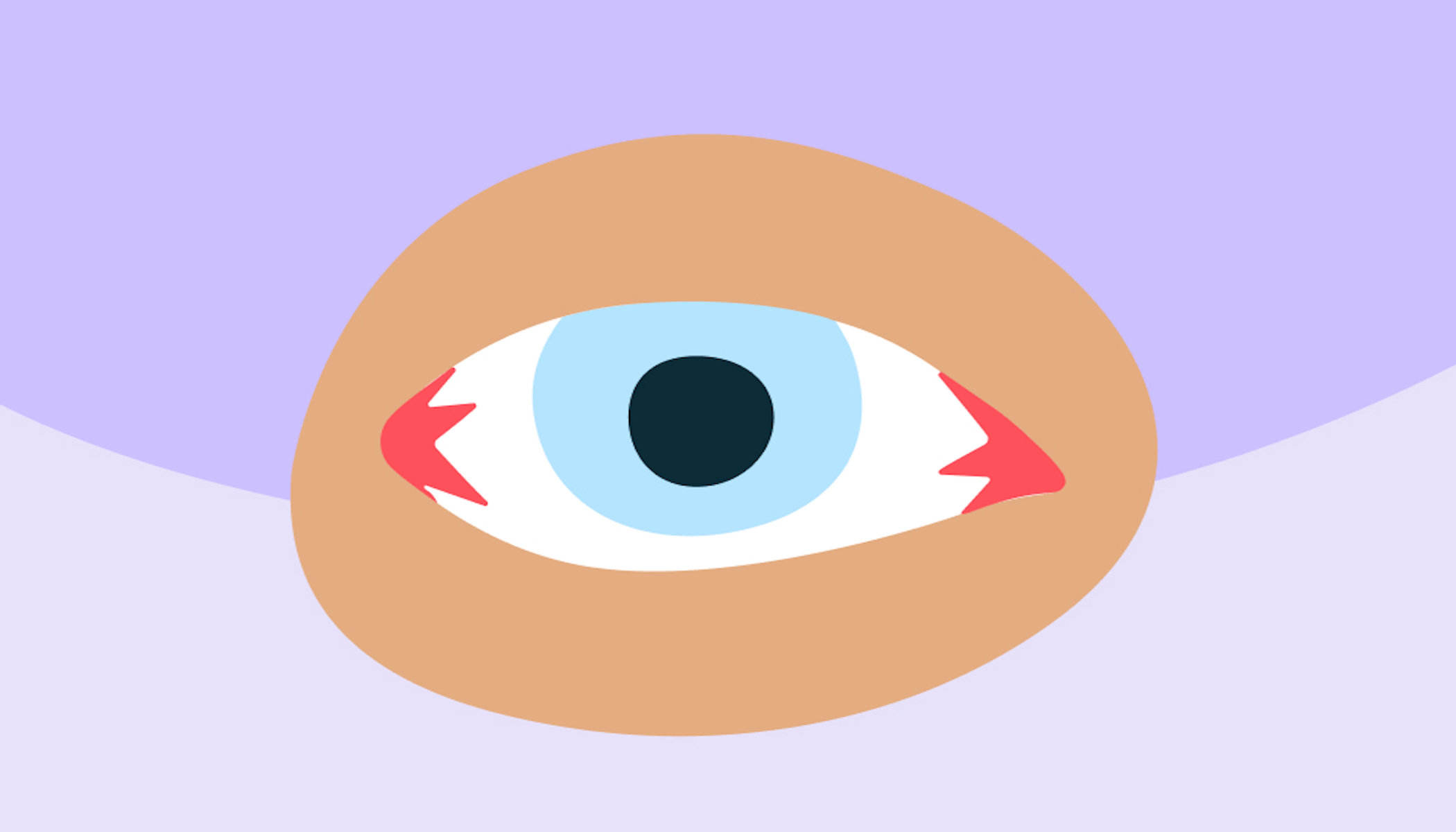Dealing with an eye twitch is annoying, but thankfully it’s usually harmless and goes away on its own. It might come on while you’re watching TV, working late or studying for an exam and feels like a small spasm affecting the upper or lower eyelid.
The most common type of eye spasm is general myokymia, which is a temporary muscular twitch caused by tiredness, stress, or drinking too much caffeine. It can come and go, lasting for a few days or weeks at a time.
Having a twitchy eye is usually nothing to worry about and you can help to relieve it by getting more rest. Here are the most common causes of eye spasms and what can help.
1. Stress
You might notice that your eye twitch comes on during times of stress, like when you’re preparing for a test or meeting a work deadline. One study found that 2 in 5 medical students had eye twitches in the week before their exams.
When you’re feeling under pressure, your body releases a stress hormone called adrenaline. Known as the ‘fight or flight’ hormone, it causes the pupils to widen to help you see potential threats. This tires the eye muscles and can make them twitch, which is why reducing stress often helps to ease the spasms.
2. Tiredness
Being overworked or not sleeping enough are common triggers for eye twitches. Like the body and brain, your eyes need rest to recover.
The ideal amount of sleep for most adults is between 7-9 hours of sleep a night. Avoiding late-night scrolling and watching TV in the evening will give your eyes a break, as well as practising bedtime hygiene to have a more restful sleep.
3. Eye strain
We spend more time than ever using computers or devices. One study found that people average at 4 hours of screen time a day outside of work, which is double the recommended limit.
It’s not clear why this can cause spasms, though it may be because our eyes are strained by focusing for a long time. As well as reducing screen time, it can help to apply a warm compress to your eyes to soothe them.
4. Dry eyes
Certain products like make-up and harsh cleansers can irritate the eyes. Wearing contact lenses and staring at a screen for long periods can also irritate and dry our eyes and make them more susceptible to twitches and spasms.
You can use eye drops to help keep your eyes moisturised, and a pharmacist will be able to help advise you on products that won’t irritate them.
5. Too much caffeine
Caffeine is a stimulant, and like adrenaline, it can trigger the eyes to become overstimulated and twitchy.
Coffee, tea, energy drinks and soda all contain caffeine, and it’s best to drink no more than 2-4 caffeinated drinks a day.
6. An eye condition
Nystagmus
This is a type of eye condition where the eyes move uncontrollably. Rather than feeling like a twitch or a spasm, it causes repetitive movements, such as the eyes flickering up and down, forward and back or in circles. Some people describe it as feeling like their eyes have a mind of their own.
The condition affects less than 3 in every 1,000 adults. It can be caused by an eye injury, certain medications or using drugs and alcohol.
Neuromuscular conditions
Occasionally, eye spasms are caused by a neurological condition like blepharospasm or hemifacial spasm. Both are rare and the symptoms become much stronger than a gentle twitch.
Your eyes may blink rapidly or close very tightly so that you can’t open them, or you may feel a tightness that spreads from your eyes to other parts of your face. If you’re experiencing these symptoms, speak to a doctor immediately.
Sometimes it can also be due to blepharitis or conjunctivitis.
When do I need to worry about my eye twitching?
Though rare, sometimes eye twitching can be a sign of other conditions affecting the brain or nervous system, Parkinson’s disease, Tourette’s syndrome or Bell’s Palsy.
If you’re experiencing any of the below symptoms, then speak to a doctor. They will be able to help identify the cause and find the best treatment.
- Spasms that affect other parts of the face or body
- Drooping on one side of the face
- Muscle stiffness or problems balancing
Similarly, if your eye twitch lasts longer than 3 months or it’s disrupting your life or bothering you a lot, then it’s best to speak to a doctor.
This article has been medically reviewed by Dr Bryony Henderson.


